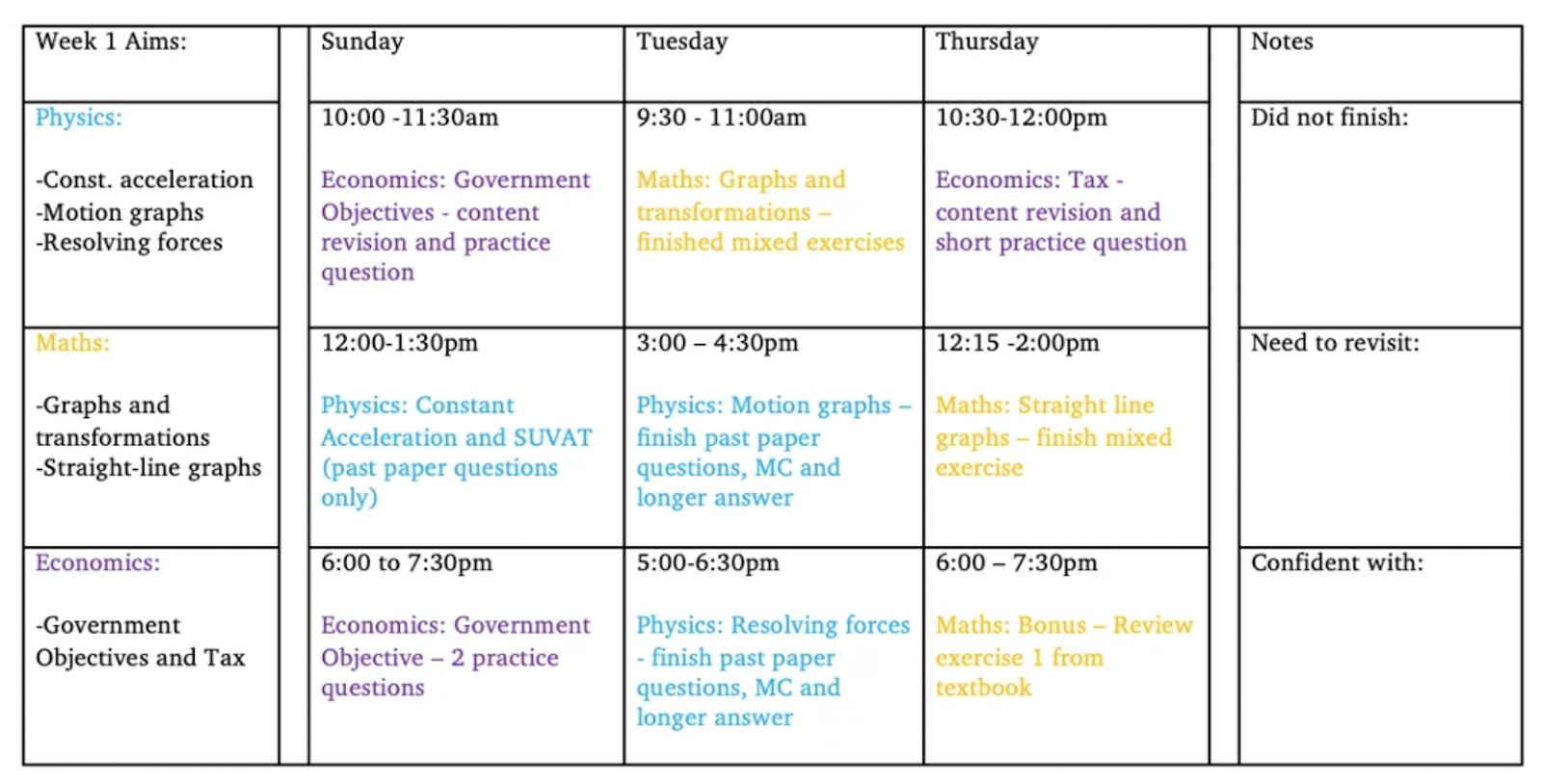Self Study A Levels at Home? Guide + Handy Tips For Homeschooling

May 23, 2025 | 9 months | Hacks & Tips
In This Article:
Can you study A Levels at home?
Yes, you can! According to a government census, 92,000 children in England were being home-schooled in 2023, with numbers on the rise. Homeschooling can be particularly beneficial for A-level students, as these courses are often pursued by those aiming for higher education but not always as part of secondary school. Here’s why many students choose to self-study for A-levels.
Why homeschooling A Levels? Main reasons
- Location independence: For those living in remote areas or abroad where A Levels might not be available locally.
- Special educational needs: A tailored approach for students with learning disabilities or special needs.
- Health issues: Suitable for those with chronic illnesses or health conditions that prevent regular school attendance.
- Advanced studies: Allows students to take more A Levels than their school offers or to explore additional subjects not available at their school.
- Work commitments: A flexible option for students juggling part-time jobs or other work obligations.
- Sports or arts training: Designed for students engaged in intensive sports or arts training requiring a flexible study schedule.
- Previous schooling gaps: Helps those returning to education after a break or needing to catch up on missed coursework.
- Mature students: An option for mature learners taking A Levels later in life, who prefer a self-study approach.
- A-level resits: Ideal for improving in specific areas after not achieving the desired results.
Easy Flexible Payments with CloudLearn
Spread the cost of your course with flexible, affordable payment plans.
Find out more
Is it possible to self-study an A Level? What students say
I 100% approve self-study, and it is better than going to school if you are smart and have enough motivation and discipline to study every day.
I’d say get a tutor rather than going to a school because in A Levels you really need a teacher's guidance on what the examiner wants from you in writing your answers, the standards you have to follow, and overall how to attempt the papers and concept building.
100% better than going to school, in terms of the academic side. However, you lose the social aspect (I went to 6th form). I ended up teaching myself most of the stuff.
I suppose it all depends on how much self-motivation you have. It also depends on the resources available to you. I wouldn’t recommend going completely solo, you could invest some time and money in a private tutor because if there is something you don't understand (and I can almost guarantee there will be) you're likely to lose motivation.
As we can see, while doing A Levels at home can be highly effective, students often emphasize the need for expert guidance, motivation, and quality resources. That’s where CloudLearn steps in. Our A Level courses tackle these challenges by providing on-demand 1:1 tutor support and access to an online student community, ensuring you’re never studying alone.
With private tutors in the UK averaging £37.45 per hour, CloudLearn offers 24 months of comprehensive course access and tutoring for the equivalent cost of just 10 hours with a private tutor—making it a cost-efficient choice. And that’s not all: an impressive 98.2% of our students achieved grades 9 & 8 at GCSE and A* & A at A-Level.
Pros and cons of A Level self-study
| Aspect | Advantages | Disadvantages |
| Flexibility | Study at your own pace and on your own schedule. | Self-discipline and time management can be challenging. |
| Cost | Usually cheaper than formal tuition or private tutors. | Potential costs for textbooks and other resources. |
| Customisation | Tailor study plans to your strengths and weaknesses. | Lack of structured guidance might lead to gaps in knowledge. |
| Independence | Develop self-motivation and independent learning skills. | Limited immediate feedback or support. |
| Resources | Access to a wide range of online resources and materials. | Need to find and vet quality resources independently. |
| Pace | Focus on topics of interest or difficulty. | Risk of falling behind without a structured timeline. |
| Exams | Freedom to choose exam dates and locations (depending on the exam board). | May face challenges with exam preparation without guidance. |
| Support | Potential for online forums and study groups. | Limited one-on-one support compared to formal education. |
| Motivation | Can be highly motivating if you're self-driven. | Risk of decreased motivation and discipline. |
Looking to Excel in Your A-Level Exams?
Get the A-Levels you need at CloudLearn!
View our A-Level courses
How to study for A Levels on your own? 6 Steps to achieving your goal
1. Choose your subjects
In the UK, students typically take three to four A-levels, so selecting your A-level subjects is the crucial first step. Sixth forms and colleges often offer a limited range of subjects, whereas online academies provide a much broader selection, giving students the flexibility to choose subjects they’re passionate about or that align closely with their career aspirations.
Here is the complete list of A Level subjects recognised by two of the most popular exam boards: Edexcel and AQA.
Unsure about which subjects to choose? Have a look at our guide, packed with all the criteria for choosing the perfect A Levels for your career path.
2. Create a study plan
Discipline is one of the biggest challenges in homeschooling, so it's crucial to simplify the process from the very start. A good approach is to create a study plan that distributes topics across the time you have until the exam, structures daily study hours, and accommodates other activities in your schedule. Sticking to this plan will help you stay on track throughout your homeschooling journey.

Pro tip: Use our study time calculator to determine how many hours per day you should dedicate to studying, based on the number of subjects you’re taking and the time left until your exams.
3. Gather resources
Many homeschooled students gather resources independently, perhaps purchasing a textbook or two and downloading exercise sheets, but this approach can result in gaps in knowledge. Enrolling in a reputable online course ensures you have all the necessary materials to cover every topic comprehensively, while also offering a variety of resources to help you find what suits your learning style best.
Take a look at our sample course and discover how CloudLearn can simplify your A Level journey!
4. Use effective study techniques
Reading endless texts isn’t for everyone, and that’s perfectly fine! Try using mind maps, flashcards, colour-coded notes, and ask a friend or family member to quiz you. Incorporating a variety of effective study techniques will not only help you retain concepts better but also keep you motivated.
For more details on scientifically-backed study methods, check out our article on how to revise for A Levels (+ common mistakes to avoid).
5. Practice past papers
Past papers are essential to a successful study strategy. They allow you to understand what’s included in the exam, what examiners consider when calculating grades, and they can be used as mock exams to test your knowledge and time management.
Did you know? Carefully reading the questions, managing your time effectively, and avoiding redundancy are the top three recommendations from official A Level examiners.
6. Seek feedback
Stay in touch with tutors to receive constructive feedback on your performance. Regular tutoring sessions can help you pinpoint areas needing improvement, clarify challenging topics, and deepen your understanding. Tutors can also offer additional resources tailored to your needs, ensuring that you effectively reinforce your learning.
| Bonus track: The ultimate self-study routine |
| ✔️Find a suitable exam board and download their specifications.
✔️ Print out the course specifications and break them down into manageable chunks. ✔️ Get a calendar and schedule your tasks for each week. ✔️ Set achievable deadlines, such as finishing unit X by week X. ✔️ If you're a visual learner, drawing mind maps after each unit can be very helpful. Alternatively, create flashcards with key facts and concepts. ✔️ Invest in good textbooks, do some research online, and explore the topic in depth to ensure you truly understand and retain the material. ✔️ Practice as many past papers as you can to get a feel for what you'll be tested on. Remember to keep revising material that doesn’t appear in past papers! ✔️ Don’t wait until the last weeks to revise. Include regular revision sessions in your study calendar. |
Top 3 challenges for home learners (and how to tackle them)
Maintaining motivation and discipline
In the absence of classmates or a full-time teacher, staying motivated and disciplined can be challenging, especially without the pressure of a set schedule. That’s why having a structured programme is crucial, even if you’re working independently.
Online academies like CloudLearn provide a pre-established course to follow, enabling you to set clear goals, distribute topics over time, and create a personalised schedule that keeps you on track.
Identifying and addressing knowledge gaps
When students gather their own resources, it’s easy to miss key topics that should be part of their study plan, particularly when relying on generic materials not tailored to the exam board.
CloudLearn designs courses specifically around exam content, so you won’t have to worry about choosing the right textbooks or missing any crucial points. This ensures comprehensive coverage of all essential topics, giving you peace of mind as you prepare for your exams.
Finding reliable resources and support
Building on the previous point, our tutors are here to assist you in finding additional materials when you’re struggling with a difficult topic. If you hit a roadblock, you can request a 1:1 session for personalised explanations, supplementary resources, and help in assessing your current knowledge.
Further reading: Learn more about how to sit A-levels exams privately and succeed!
A Guaranteed Pass in Your Exams!
CloudLearn are the only UK Online Learning centre to guarantee a pass for our students.
Find out more
Overwhelmed? Here are your next steps!
Taking the plunge into homeschooling A Levels might feel overwhelming, but with CloudLearn, you’re never alone. Here’s how to get started:
- Enrol in your courses: Choose the subjects that align with your interests and career goals.
- Explore the student portal: Access a wealth of study resources, past papers, and personalised study plans.
- Meet your designated tutor: Schedule a 1:1 session to discuss your goals and start your learning journey on the right foot.
- Set up your study schedule: Use our study calendar to create a routine that works for you.
Ready to begin? Enrol today and take the first step towards achieving your A Level success with CloudLearn!
Frequently Asked Questions
How many hours a day should you study for A Levels?
The amount of study time can vary, but a general guideline is to aim for 4-6 hours per day. This allows you to cover all your subjects effectively while leaving time for revision and practice. Use CloudLearn’s Student Calculator to tailor your study schedule to your needs.
How quickly can I complete an A Level?
With CloudLearn’s fast-track capabilities, it's possible to complete an A Level in as little as a few months, depending on your dedication and study pace. This accelerated option is perfect for students eager to progress quickly without compromising the quality of their learning. Here are the easiest A-levels to fast-track.
What are the easiest A Levels to self-teach?
Subjects like Sociology, Psychology, and English Literature are often considered easier to self-teach due to their emphasis on reading and essay writing. However, the ease of a subject depends on your strengths and interests, so choose subjects you feel confident in and passionate about.
Can a 16-year-old study A levels at home?
Absolutely! Many 16-year-olds choose to study A Levels at home, particularly if they prefer a flexible learning environment. While some may think that online courses are only for mature students or retakers, the truth is that anyone, regardless of age, can benefit from courses like ours!
Can I do A Levels without going to school?
Yes, you can study A Levels without attending a traditional school. CloudLearn offers online A-Level courses, allowing you to study independently while receiving tutor support and accessing comprehensive study materials. This flexibility lets you learn at your own pace and schedule.
Are online A Levels accepted by universities?
Yes! What matters to universities is the certificate you get from awarding bodies after you sit for the exam. It doesn’t matter how you prepare for these exams, so you can choose to do it at school, at a sixth-form, or on your own through an online academy like CloudLearn.
How much does a private tutor cost for homeschooling (UK)?
The cost of a private tutor in the UK can vary significantly, typically ranging from £20 to £50 per hour, depending on the subject and the tutor’s experience. Additionally, you’ll need to purchase materials, which can drive up the total cost considerably. CloudLearn’s courses, however, include online resources and tutor support for the cost of just a few hours of private tutoring, making homeschooling a more affordable option.